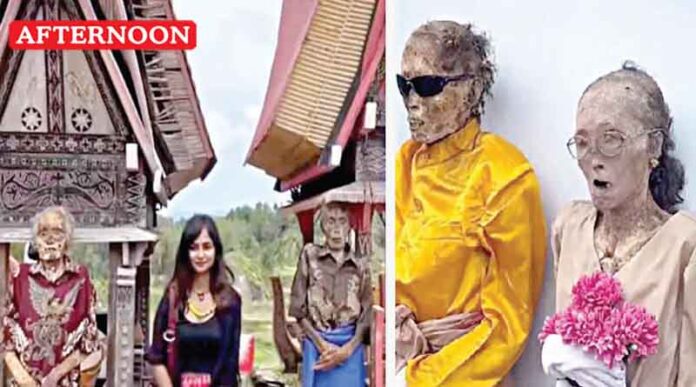In one of the world’s most fascinating and deeply spiritual customs, the Toraja tribe of South Sulawesi, Indonesia, preserves the bodies of their deceased loved ones for years—sometimes even decades—before conducting lavish, multi-day funeral ceremonies that celebrate life, death, and the eternal bond between families.
For the Toraja, death is not seen as an end but as a transition to the spiritual world. The deceased are regarded as “sick” or “sleeping” family members and remain in their ancestral homes, known as tongkonan, where relatives continue to speak to them, offer food, and care for them as though they were still alive.
Every two years, families take part in a unique ritual called Ma’nene, or the “Cleaning of the Corpses” ceremony. During this event, preserved bodies are exhumed, cleaned, dressed in new clothes, and introduced to new family members, including babies born after the last ceremony. This ritual is a heartfelt expression of love and respect, symbolizing the belief that the connection between the living and the dead never truly ends.
The bodies, dried and treated with traditional herbs, often retain their hair, facial features, and clothing. Some are kept until both husband and wife have passed away so they can begin their final journey together.
When the time for the grand funeral arrives, the event lasts five days or more, filled with buffalo and pig sacrifices, traditional music and dance, and communal feasts attended by hundreds. Families often spend their life savings on these ceremonies, which are considered the ultimate act of devotion and honor for the departed.
At the conclusion of the rituals, the bodies are cremated or placed in cliffside rock tombs, a haunting yet beautiful sight unique to the misty highlands of Tana Toraja. Here, among the clouds and carved cliffs, the living and the dead continue to share a sacred space — bound together by an unbroken circle of memory, faith, and love.







